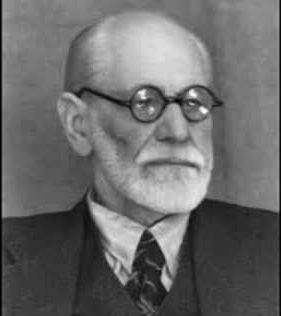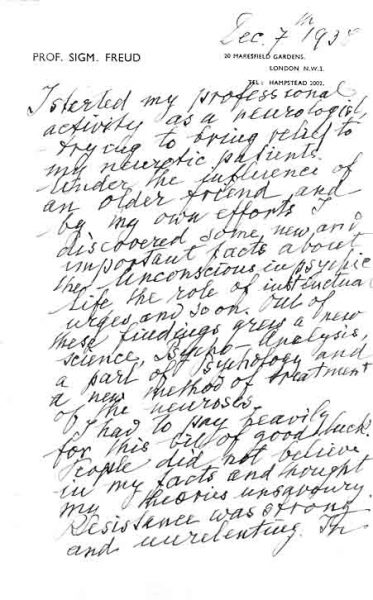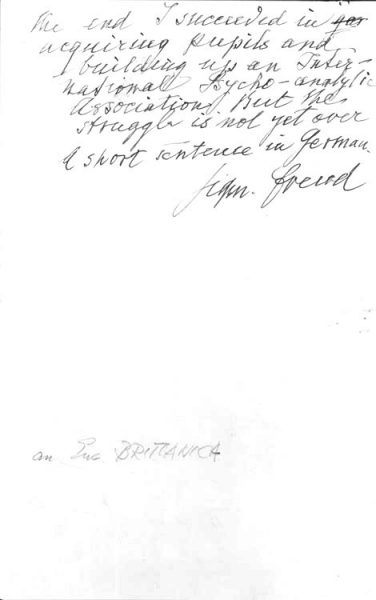
Sigmund Freud Speaks: The Only Known Recording of His Voice, 1938
![]() On December 7, 1938, a BBC radio crew visited Sigmund Freud at his new home at Hampstead, North London. Freud had moved to England only a few months earlier to escape the Nazi annexation of Austria. He was 81 years old and suffering from incurable jaw cancer. Every word was an agony to speak.
On December 7, 1938, a BBC radio crew visited Sigmund Freud at his new home at Hampstead, North London. Freud had moved to England only a few months earlier to escape the Nazi annexation of Austria. He was 81 years old and suffering from incurable jaw cancer. Every word was an agony to speak.
Less than a year later, when the pain became unbearable, Freud asked his doctor to administer a lethal dose of morphine. The BBC recording is the only known audio recording of Freud, the founder of psychoanalysis and one of the towering intellectual figures of the 20th century. (Find works by Freud in our collection of 300 Free eBooks.) In heavily accented English, he says:
I started my professional activity as a neurologist trying to bring relief to my neurotic patients. Under the influence of an older friend and by my own efforts, I discovered some important new facts about the unconscious in psychic life, the role of instinctual urges, and so on. Out of these findings grew a new science, psychoanalysis, a part of psychology, and a new method of treatment of the neuroses. I had to pay heavily for this bit of good luck. People did not believe in my facts and thought my theories unsavory. Resistance was strong and unrelenting. In the end I succeeded in acquiring pupils and building up an International Psychoanalytic Association. But the struggle is not yet over. –Sigmund Freud.
![]() Il 7 dicembre 1938, la radio BBC fece visita a Sigmund Freud nella sua casa ad Hampstead, nel nord di Londra. Freud si era trasferito in Inghilterra solo qualche mese prima per sfuggire all’annessione nazista dell’Austria. Aveva 81 anni e soffriva di un incurabile cancro alla mascella. Pronunciare ogni parola era un’agonia.
Il 7 dicembre 1938, la radio BBC fece visita a Sigmund Freud nella sua casa ad Hampstead, nel nord di Londra. Freud si era trasferito in Inghilterra solo qualche mese prima per sfuggire all’annessione nazista dell’Austria. Aveva 81 anni e soffriva di un incurabile cancro alla mascella. Pronunciare ogni parola era un’agonia.
Meno di un anno più tardi, quando il dolore divenne insopportabile, Freud chiese al suo dottore di somministrargli una dose letale di morfina. La registrazione della BBC è l’unica audioregistrazione conosciuta di Freud, il fondatore della psicoanalisi e una delle più rilevanti figure intellettuali del 20° secolo. In un inglese fortemente accentato, dice:
Ho iniziato la mia attività professionale come neurologo provando a portare sollievo ai miei pazienti nevrotici. Sotto l’influenza di un vecchio amico e i miei propri sforzi, ho scoperto alcuni nuovi e importanti fatti sull’inconscio nella vita psichica, sul ruolo dei desideri istintuali, e così via. Da queste indagini è cresciuta una nuova scienza, la psicoanalisi, una parte della psicologia, e un nuovo metodo di trattamento delle neurosi. Ho dovuto pagare un prezzo pesante per questo poco di fortuna. La gente non credette nei miei fatti e trovò le mie teorie disgustose. La resistenza fu dura e inesorabile. Alla fine sono riuscito a procurarmi allievi e a costruire una società psicoanalitica internazionale. Ma la lotta non è ancora finita. Sigmund Freud.
Traduzione a cura di Laura Ravaioli


